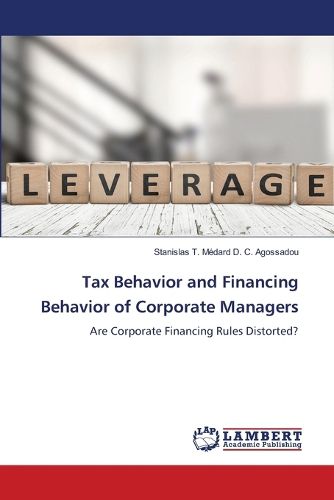Readings Newsletter
Become a Readings Member to make your shopping experience even easier.
Sign in or sign up for free!
You’re not far away from qualifying for FREE standard shipping within Australia
You’ve qualified for FREE standard shipping within Australia
The cart is loading…






This book aims to analyzing the influence of tax behavior on financing (financial leverage) behavior of corporate managers. The paper applies the generalized method of moments (GMM) to dynamic panel data. The sample used covers 21 firms, i.e. 11 banks for the period from 2011 to 2020 and 10 DFSs for the period from 2016 to 2021. It turns out that financial leverage behavior is influenced more positively by corporate income tax (CIT), then by dividends (DIVIDEND); and negatively by interest on debt (INTEREST), by cash flow (CASH_FLOW) and by past financial leverage (LEVERAGE( 1)). This paper is one of the first to extend the literature by identifying the main determinants of financing behavior, notably the positive effect of corporate income tax (CIT).
$9.00 standard shipping within Australia
FREE standard shipping within Australia for orders over $100.00
Express & International shipping calculated at checkout
This book aims to analyzing the influence of tax behavior on financing (financial leverage) behavior of corporate managers. The paper applies the generalized method of moments (GMM) to dynamic panel data. The sample used covers 21 firms, i.e. 11 banks for the period from 2011 to 2020 and 10 DFSs for the period from 2016 to 2021. It turns out that financial leverage behavior is influenced more positively by corporate income tax (CIT), then by dividends (DIVIDEND); and negatively by interest on debt (INTEREST), by cash flow (CASH_FLOW) and by past financial leverage (LEVERAGE( 1)). This paper is one of the first to extend the literature by identifying the main determinants of financing behavior, notably the positive effect of corporate income tax (CIT).